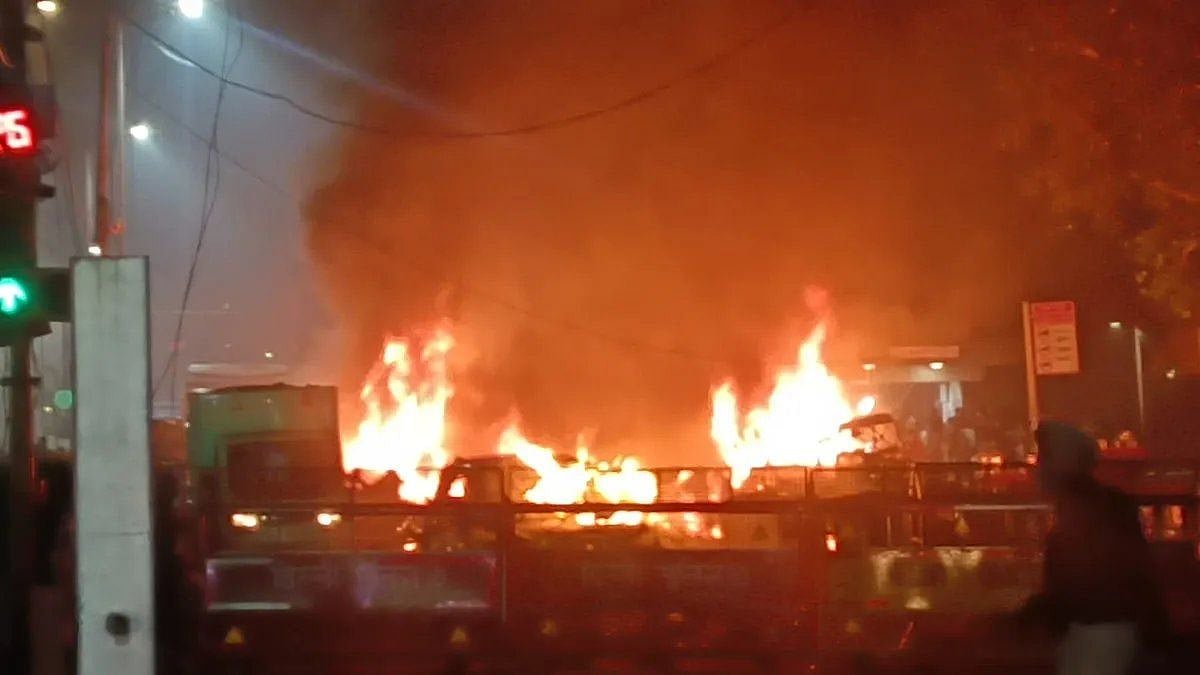The encounter that ended three days ago in the forested hills of the Rajouri sector of Jammu, which claimed the lives of two captains and two soldiers, has come as a grim reality check for our security planners. Seeking to explain the high cost in terms of lives lost, General Officer Commanding in Chief, Northern Command, Lt General Upendra Dwiwedi, claimed that “some of the terrorists who had lost their lives were retired army personnel from Pakistan.”
He did not provide any details of their ranks, units, or names to substantiate his unusual claim. The claim is extraordinary because security planners who have worked long years in Kashmir, interviewing in the process hundreds of terrorists and militants, have hardly come across instances of Pakistan army personnel operating directly and openly in the erstwhile state of Jammu and Kashmir.
The General’s assertion is troubling for another reason as well. Usually people retire in the armed forces after about twenty three years of service or longer. That would put the ages of those who killed our soldiers well above the age of forty; it does not speak too well of our preparedness, if their old men are able to pin down our young men effectively.
The General’s claim is hard to accept for another reason as well. Normally it is people who are easily indoctrinated and are at an impressionable age (say 16-25) who infiltrate, after being trained by terrorist organisations where the ISI has a behind-the-scenes role.
General Dwiwedi’s claim certainly blows a large hole in the government’s stated position that all is well in the area after Article 370 was revoked. It is the clearest sign that complacency has extracted a heavy price and it is time to go back to the drawing board where the security grid of Jammu and Kashmir is concerned.
The incident shows that the rebranding of these politically volatile joined-at-the-hip areas has not changed the stark realities that subsist below the surface of all-is-normal façade.
The first to crumble is the army’s lack of challenge which has led to a thinning of the security grid that had been in place between 2008 and 2018, when the control of the state was usurped by New Delhi through the governor. After the Galwan incident, when the sudden Chinese presence in border areas gave us a solid black eye, army deployment has further thinned out across the entire security grid, mainly to engage the Chinese eyeball to eyeball.
Security grid refers to the working in tandem of multiple intelligence agencies, paramilitary forces, the local police, and the Rashtriya Rifles. The latter is a framework where army soldiers and officers from various specialities such as infantry, armed service corps, ordnance and artillery are loosely herded together, to form a counter-insurgency grid.
According to people in the know, the Rajouri incident unerringly points to a certain softening of the army’s responses and a general lack of specificity in intelligence inputs matched by a proportional recommitment of the Pakistani side to keep the Kashmir fires burning.
There is a crucial difference however. It is here linked more to drones and drugs and arms supplies. Sources say that that there is enough empirical and other evidence that drones are being put into more frequent and regular use in these areas, particularly after their successful penetration of the border in adjoining Punjab. This makes the operation seamless. Sources say that the steady growth of seamless trans-border smuggling through drones has seen a mushrooming of the endemic support network in the region. Drugs provide the monetary motivation and the arms provide the wherewithal to keep the insurgency going.
There is also the matter of the size of the area and the terrain. Poonch and Rajouri are large areas where the terrain is tough, hilly and forested and the troop presence thin, and easy to access from Pakistan. It has seen a perceptible increase in terms of lives lost and terrorist incidents, about 45 lives by one count, including in some demonstrative attacks such as the one heralding Pakistan’s Bilawal Bhutto’s arrival for the SCO summit in Goa in May. Even so, if our premier fighting forces engage with the terrorists on a seemingly even keel and are apparently ambushed in their own ambush points, it suggests a definite blunting that needs immediate attention.
Perhaps the reasons are not far to seek. The army has frittered away its core competencies for extraneous considerations such as enabling “geo-tagged selfie points” – with a compulsory picture of PM Modi -- some 822 or them via a government order – and robust promotion of government policies such as Swachch Bharat, computer classes, etc. All these are surely laudable but none of these are reasons why people should join the army and none of this helps address the alienation on the ground in Jammu and Kashmir, even superficially.









